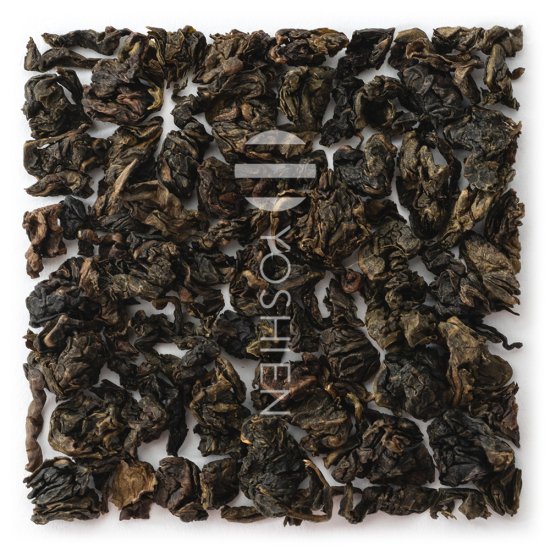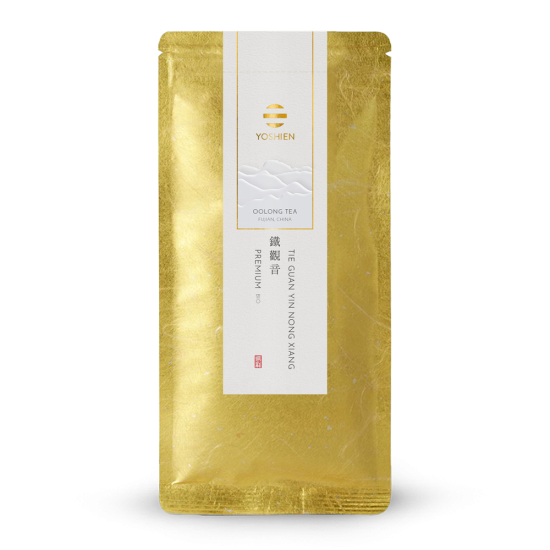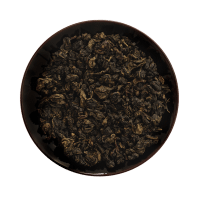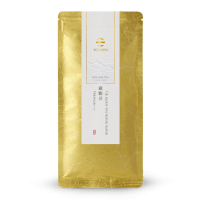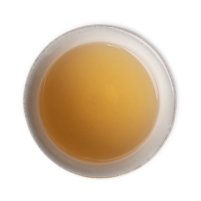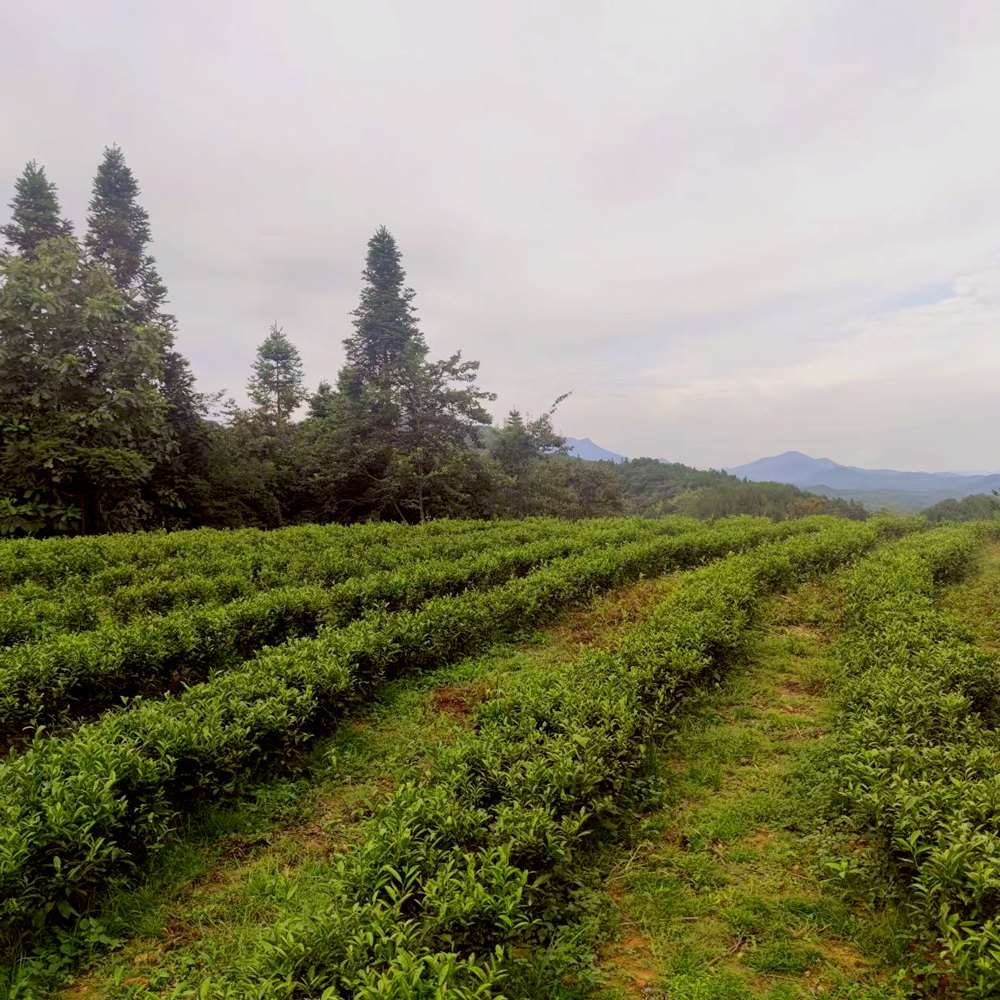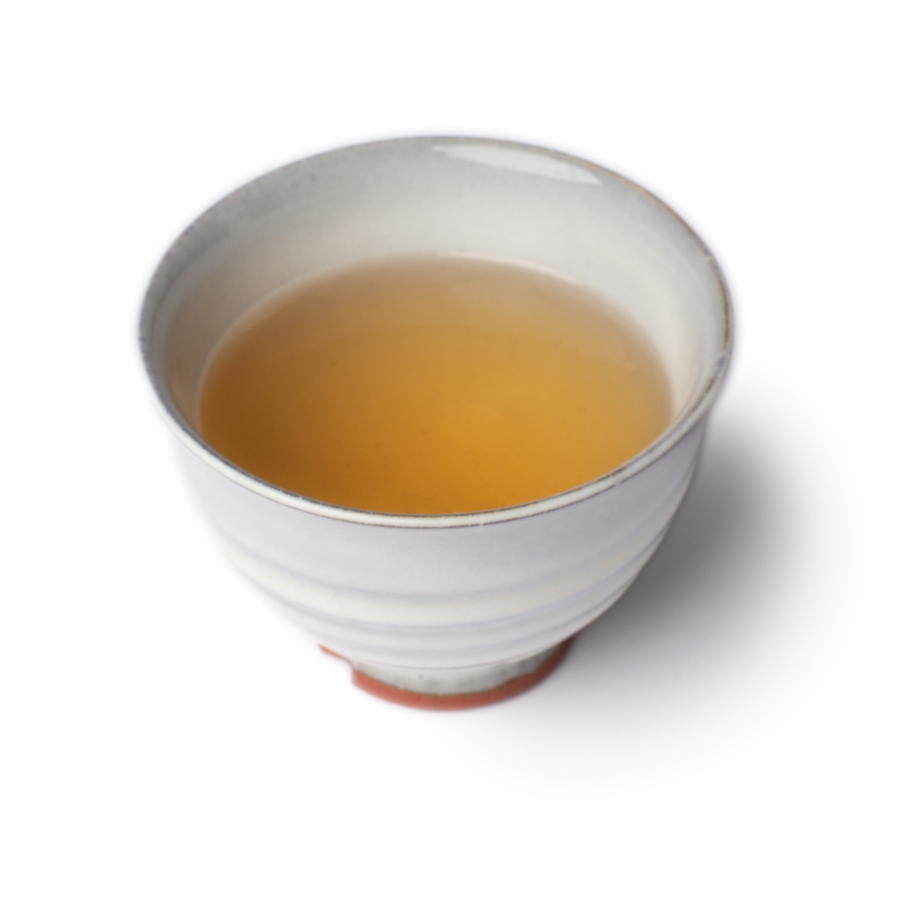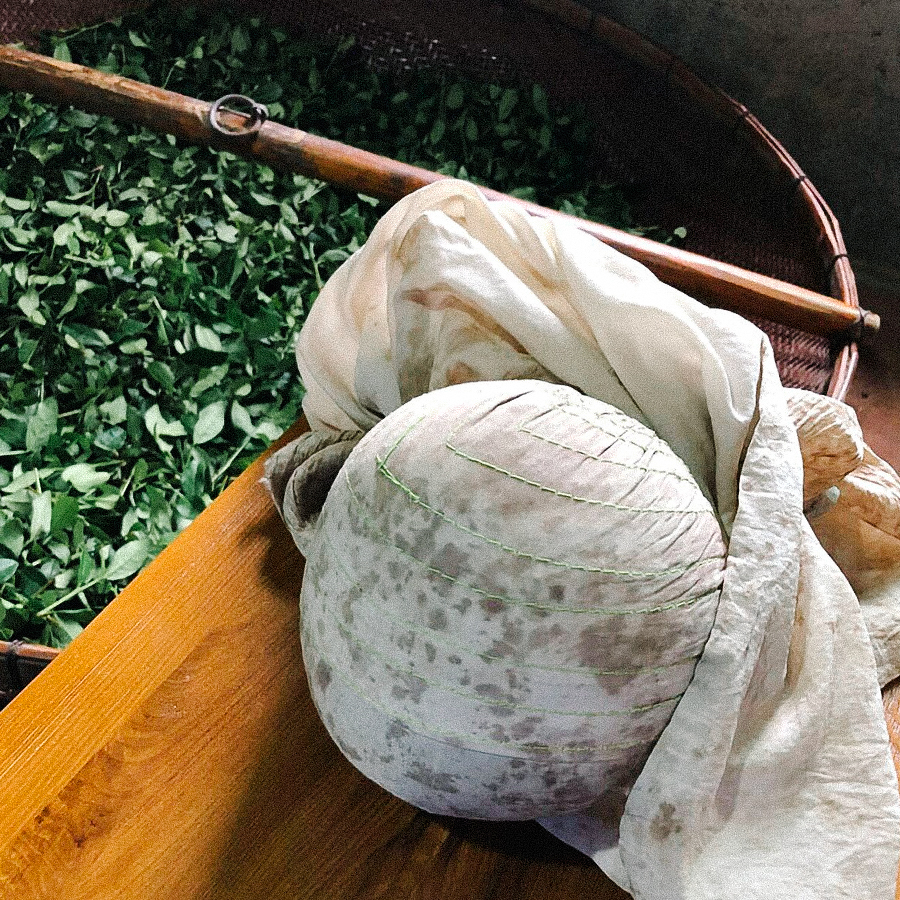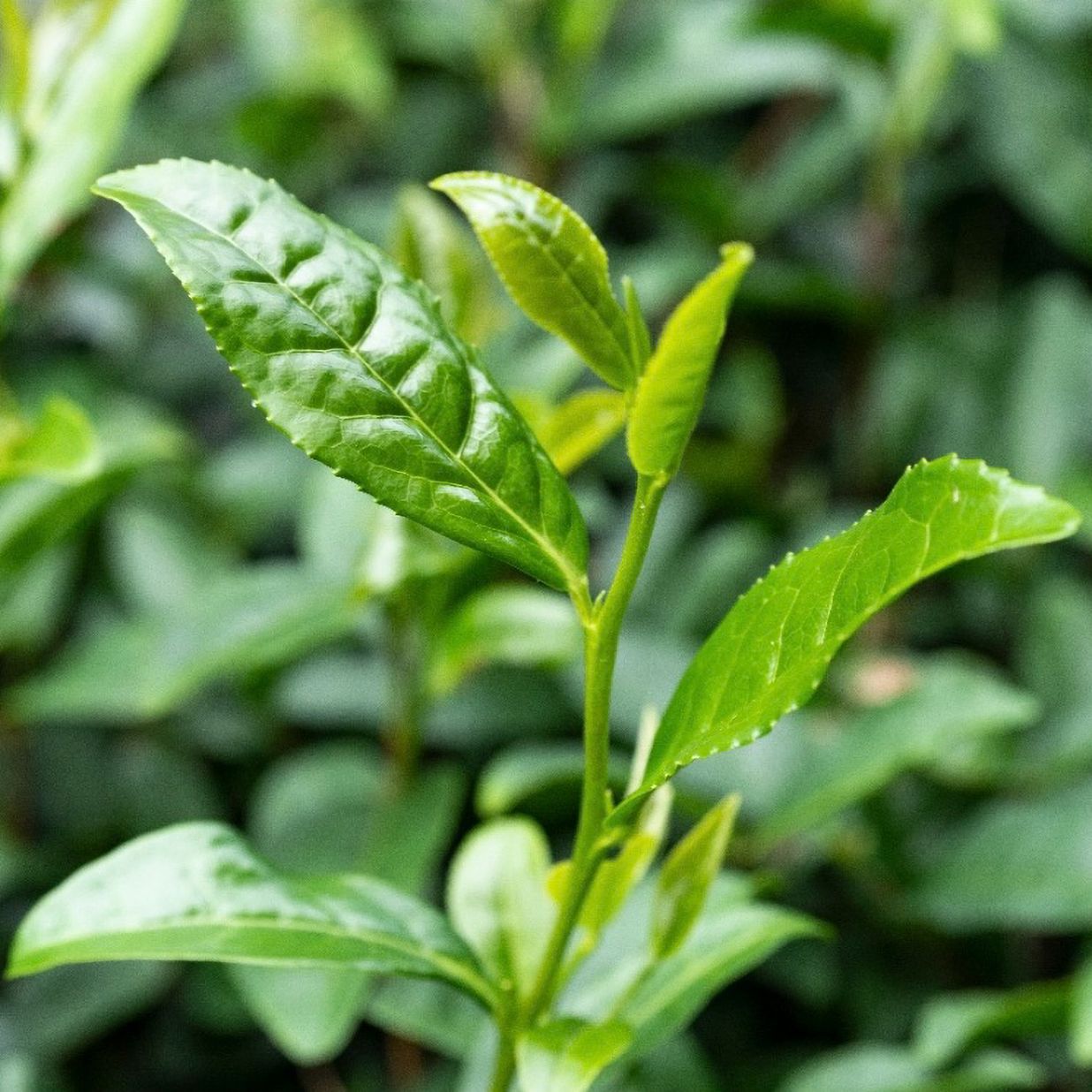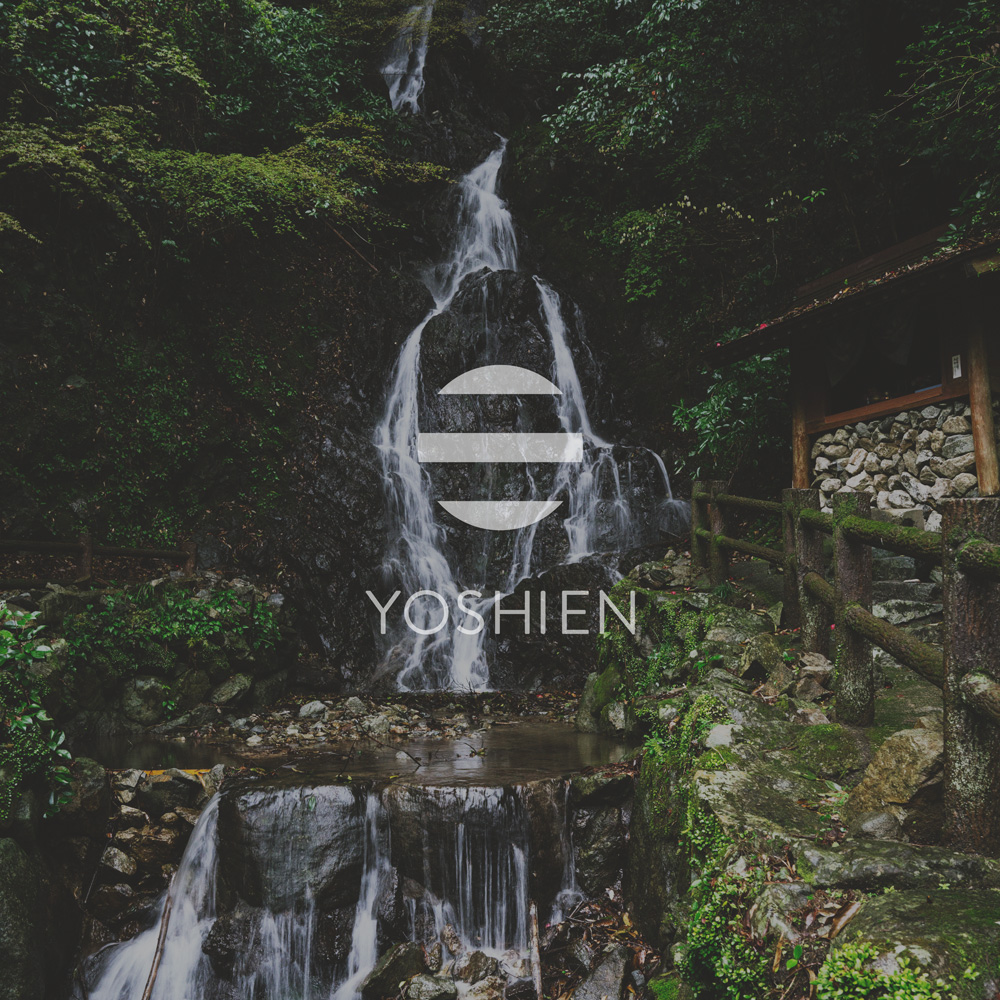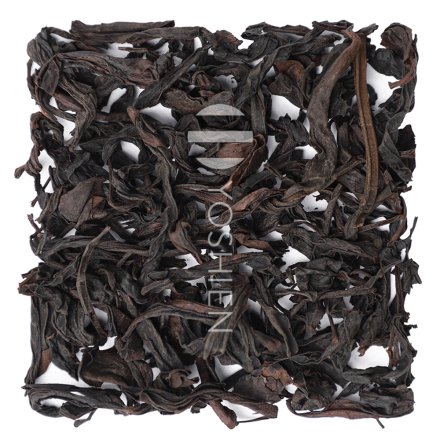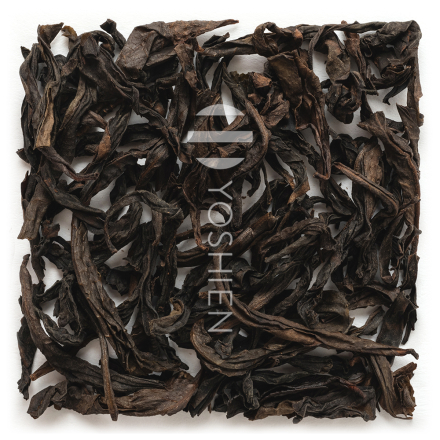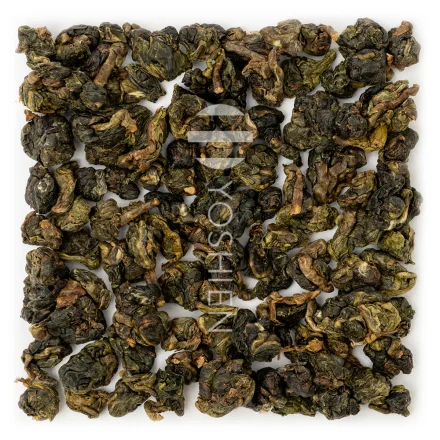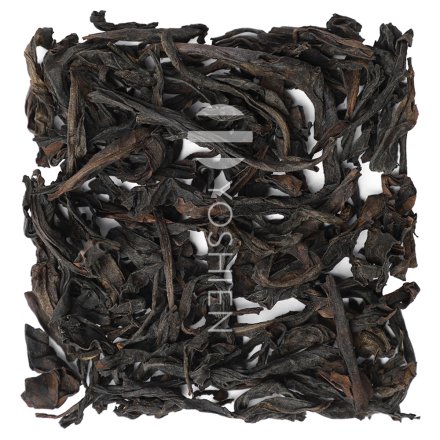A variety of Oolong tea, Tie Guan Yin comes in two forms: the traditional, more oxidised Chuan Tong (傳統) style that is withered at room temperature, and the modern, lighter Qing Xiang (清香) which is less oxidised due to withering at cooler temperatures. As typical of Oolong teas, the leaves are left to grow a little larger than for green teas, with only the bud and first three leaves picked by hand, which are then withered in the sun to remove moisture and initiate oxidation. Further withering is carried out indoors where the leaves are also tossed and shaken to break down the cell walls and facilitate oxidation – which reduces bitterness and enhances flavour. Once the desired level of oxidation is achieved, the leaves are then heat-treated (aka 'kill green' or 'fixing') to prevent further oxidation. The leaves are then rolled to release the oils and take on the characteristic hemispherical shape of Tie Guan Yin. Finally, the leaves may be roasted and scented before they are dried.
Organic Certification

PL-EKO-01
Nicht-EU-Landwirtschaft




